2004: The Year in Review, Part 2
Our review of the gaming year continues with Nintendo controversies, E3 highlights, astonishing next-gen Sony information leaks, and much more, in our look at Q2.
[Part 1] [Part 2] [Part 3] [Part 4]
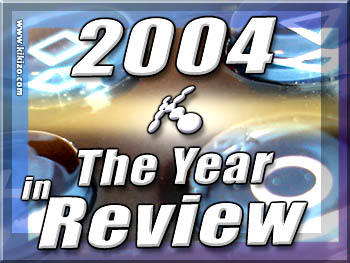
Part 2
The second quarter of the year in the videogame industry is all about the Electronic Entertainment Expo, which takes place in Los Angeles each May. During the five days that make up the show, everyone associated with the industry converges in the Los Angeles Convention Centre to play games, talk business and pay exorbitant prices for painfully average fast food. The scorching lights and sounds that ring in your ears for days vie with game creators and celebrities for your attention, leaving everyone who takes part in the week physically devastated.
PSP & DS Clash in LA
While this year's show had all the requisite sequels and original titles that everyone expected, it was Sony's PSP and the Nintendo DS that got people to stand in queues. Surprises at Nintendo's public unveiling of the Nintendo DS at its pre-E3 conference were spoiled somewhat by an article on the handheld by USA Today that appeared the same morning, but more cynical attendees were won over by the handheld's dual-screen design and touch-screen gameplay, combined with a few game demos that took advantage of the new opportunities opened up by the design.
But it was the PSP that really wowed people with its large, bright LCD screen and gorgeous design. Actual hands-on time with near-final games would have to wait until the Tokyo Game Show later in the year, but the sheer impact of the physical design was enough to have some proclaiming the arrival of a new handheld leader. Sony also showed off the PSP's movie playback abilities, even though ongoing negotiations with movie studios means we won't be seeing them in stores any time soon.
The Missing Link Revealed
Nintendo, however, had one big ace up its sleeve: The Legend Of Zelda. The company announced a new GameCube instalment in the venerable franchise to the elation of the crowds watching in the packed conference hall. The designers had switched the cartoon-like visuals of Legend Of Zelda: The Wind Waker for a more realistic approach, giving the series an edge not seen for a while. The game wasn't playable on the show floor, but the looping movie clip was enough for most.
Announcements Aplenty
Not to be outdone by its rivals, Microsoft also had a strong presence at E3. EA finally agreed to make its games available on Xbox Live, though some, like Tiger Woods PGA Tour 2005, would have the feature pulled for their European release. But the biggest news at Microsoft's pre-E3 conference was the announcement of the final release date for Halo 2, which the firm's Xbox Marketing VP, Peter Moore, revealed was "set in stone" for November 9.
Probably the biggest surprise of E3 was that near-compete no-show for Grand Theft Auto: San Andreas. While the game was not on the show floor, it was formally unveiled in Game Informer, which was handed out to everyone attending the show.
Despite E3's overwhelming presence on the videogame calendar, though, there were still plenty of surprises during the rest of the spring. Microsoft was clearly on to a winner with Halo 2 and Sony's response was Killzone, a first-person shooter set in the near future and designed by Dutch developer Guerrilla. Sony started the hype for Killzone early with an official Web presence and extensive magazine coverage, and Guerrilla has since signed on to make games exclusively for Sony platforms.
Sexy Sony Has a Bad Day
Things weren't all going well for Sony though. The PSX, a media centre-cum-game machine available only in Japan, was not doing as well as the company had hoped, and in April production was stopped to prevent a stock surplus. The PSX was released in an improved form in June, but it wasn't enough, and Japanese retailers resorted to heavy discounts to shift the hybrid machine.
The unit is still seen by many industry watchers as a symbol of where the gaming industry is headed, with both Sony and Microsoft planning to include broad media delivery capabilities in next-generation consoles PS3 and Xbox 2, allowing gamers to watch movies and download content. It is a strategy for living room dominance that only one company can win, and the PSX was essentially Sony's way to test the latest market climate. It is doubtful that the machine will end up on western shores at this point.
Nintendo Answers to Media and Fans
In April, Nintendo was on the receiving end of some bad publicity of its own, when the BBC aired an episode of its Outrageous Fortunes series that looked into Nintendo's business practises. The programme took an overview of the rise of the Japanese games giant, with an extensive study of the firm's most celebrated creator, Shigeru Miyamoto. The film also interviewed Kikizo's very own Carl Johnson (no connection to San Andreas) quite extensively, where he was billed as "Miyamoto's No.1 Fan".
However, the programme also spent considerable time on a series of epileptic episodes children had experienced during the late 1980s. Many felt that the producers of the programme were trying to put the blame for this industry problem squarely on Nintendo. This prompted the company to issue a statement clarifying its current safety advisory practises.

 ...as well as Kikizo's very own, LA-based Carl Johnson, credited as "Miyamoto's No.1 Fan", and also contributor Andy Robinson
...as well as Kikizo's very own, LA-based Carl Johnson, credited as "Miyamoto's No.1 Fan", and also contributor Andy RobinsonNintendo also got flack from its own fanbase with the release of the NES line for the Game Boy Advance. The Japanese releases of the decades-old games came in commemorative replica packaging and emphasised the historical importance of the original 8-bit NES games, but the European releases smelt of a cash-in, even at the reduced price the games were selling for. Whatever the hardcore gamers thought of the re-issues didn't matter, though, as the games went on to sell well, especially in Japan.
Astonishing SCEE Leakage
April saw one of the most unbelievable leaks of information the industry has seen in years, when the official PlayStation European website posted an astonishingly revealing interview with SCEE President, David Reeves. In the interview, which easily made for the hottest Pre-E3 story of the year, Reeves discussed a dual-model roll out strategy for PlayStation 3, new details on the PSP, and the then-mysterious plans for the scaled-down "PStwo", now known simply as the "slimline" version of PS2.
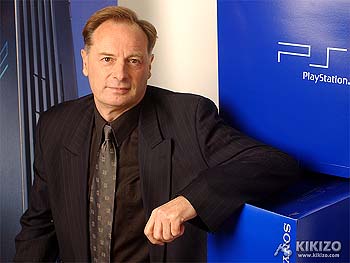 David Reeves was apparently not to blame for the leak of next generation PlayStation details after all.
David Reeves was apparently not to blame for the leak of next generation PlayStation details after all.As we put it at the time: "this sensational leak will either land Mr. Reeves' rear at the end of Kutaragi's foot for speaking so brazenly about top-secret plans for entertainment industry domination - or see a few staff from the official PlayStation website thrown onto the street... or, everyone will forget about it and pretend it never happened."
Gaming in Guildford
Meanwhile, in the UK, Guildford-based Lionhead Studios was hard at work on The Movies, a PC game that allows you to take charge of all aspects of a movie studio. The game is the latest from Peter Molyneux, an outspoken and affable industry veteran. Earlier in the year Molyneux was inducted in the Academy Of Interactive Arts And Sciences Hall Of Fame.
Molyneux was also keeping himself busy working on the much-anticipated Xbox action RPG Fable, which had already suffered with the removal of key features during development, but Microsoft, the game's publisher, was eager to push the title on the RPG-poor Xbox.
Industry Caution Rises
It didn't take Nintendo long to get back into the news though. Nintendo Of Europe's managing director David Gosen went on a tirade in June, taking on retailers for their bundling policies that forced gamers to buy bad games with consoles, the industry for its close-minded approach to game development, and Rockstar for its use of gratuitous violence in the Grand Theft Auto franchise. By the end of the month, Gosen had left Nintendo Of Europe.
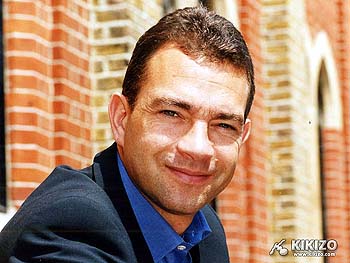 Gosen's departure from NOE eerily co-incided with controversial remarks about the undustry, but may also have had something to do with a massive welcome package from Digital Bridges
Gosen's departure from NOE eerily co-incided with controversial remarks about the undustry, but may also have had something to do with a massive welcome package from Digital BridgesThere were similar sentiments in North America. At the Future Of Entertainment Conference, several corporate and creative leaders of the videogame industry got together to discuss the fate of the medium. The meeting echoed the growing concerns that the videogame industry is being held back by a continued focus on the hardcore gamer, at the expense of a mainstream audience intimidated by the wealth of baggage videogames have collected in the past few decades.
But you only need to go to your local cinema to see that videogames still appeal to the mainstream in a big way. Videogame-based movies are on the rise, and no one was more active at pushing the melding of mediums than action film director John Woo. Woo, who previously worked on such flicks as Mission: Impossible, optioned the rights to three games with an eye to turning them into summer extravaganzas. Whether Woo's Metroid, Spy Hunter or Rainbow Six will ever see the inside of a cinema house is up in the air.
Ninja Gaiden Arrives at Last
One of the software highlights for many Xbox gamers in the first half of 2004 was undoubtedly Ninja Gaiden, from the Dead or Alive creators at Tecmo.
The epic action adventure title had been in development for years and was originally tipped to launch around the same time as the Xbox console in 2001, but perfectionist game designer Tomonobu Itagaki insisted that the game should be flawless before any gamer could even pick up the controller.
The final title was an astonishingly well designed videogame, offering some of the best graphics ever seen on console, a riveting soundtrack, impressive storyline and unfathomably challenging, detailed and rewarding gameplay - making Ninja Gaiden one of the best buys on Xbox to date, but only if the gamer has nerves of steel.
Christmas Starts in Summer
With the first half of the year out of the way, game publishers shifted focus from announcing new games to delivering them during the Christmas run-up. Come back for the two final parts, as we think back to the last half of 2004.
- Part 1: Winter 2004
- Part 2: Spring 2004
- Part 3: Summer 2004
- Part 4: Autumn 2004
Continue to Rest of Feature:
Kikizo Staff
Are betting next year will be even hotter.

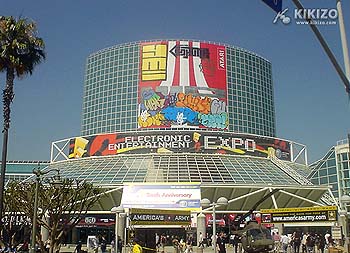
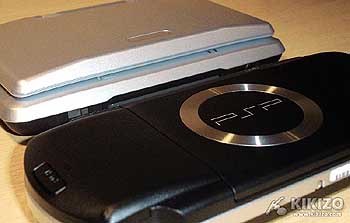

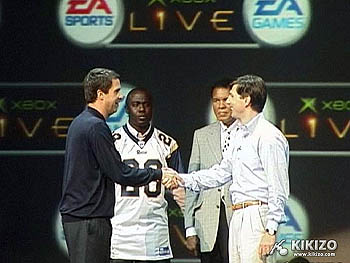
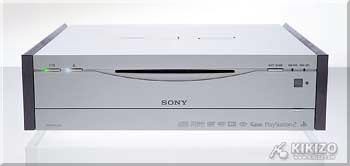
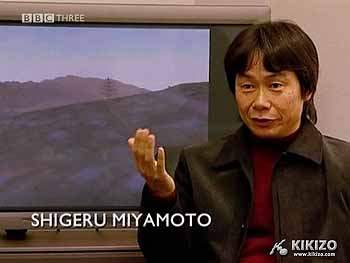






 Satoru Iwata Video Interview - the late Nintendo president spoke with Kikizo in 2004 as 'Nintendo Revolution' loomed.
Satoru Iwata Video Interview - the late Nintendo president spoke with Kikizo in 2004 as 'Nintendo Revolution' loomed. Kaz Hirai Video Interview - the first of Kikizo's interviews with the man who went on to become global head of Sony.
Kaz Hirai Video Interview - the first of Kikizo's interviews with the man who went on to become global head of Sony. Ed Fries Video Interview - one of Xbox's founders discusses an epic journey from Excel to Xbox.
Ed Fries Video Interview - one of Xbox's founders discusses an epic journey from Excel to Xbox. Yu Suzuki, the Kikizo Interview - we spend time with one of gaming's most revered creators.
Yu Suzuki, the Kikizo Interview - we spend time with one of gaming's most revered creators. Tetris - The Making of an Icon: Alexey Pajitnov and Henk Rogers reveal the fascinating story behind Tetris
Tetris - The Making of an Icon: Alexey Pajitnov and Henk Rogers reveal the fascinating story behind Tetris Rare founders, Chris and Tim Stamper - their only interview? Genuinely 'rare' sit down with founders of the legendary studio.
Rare founders, Chris and Tim Stamper - their only interview? Genuinely 'rare' sit down with founders of the legendary studio. The History of First-Person Shooters - a retrospective, from Maze War to Modern Warfare
The History of First-Person Shooters - a retrospective, from Maze War to Modern Warfare